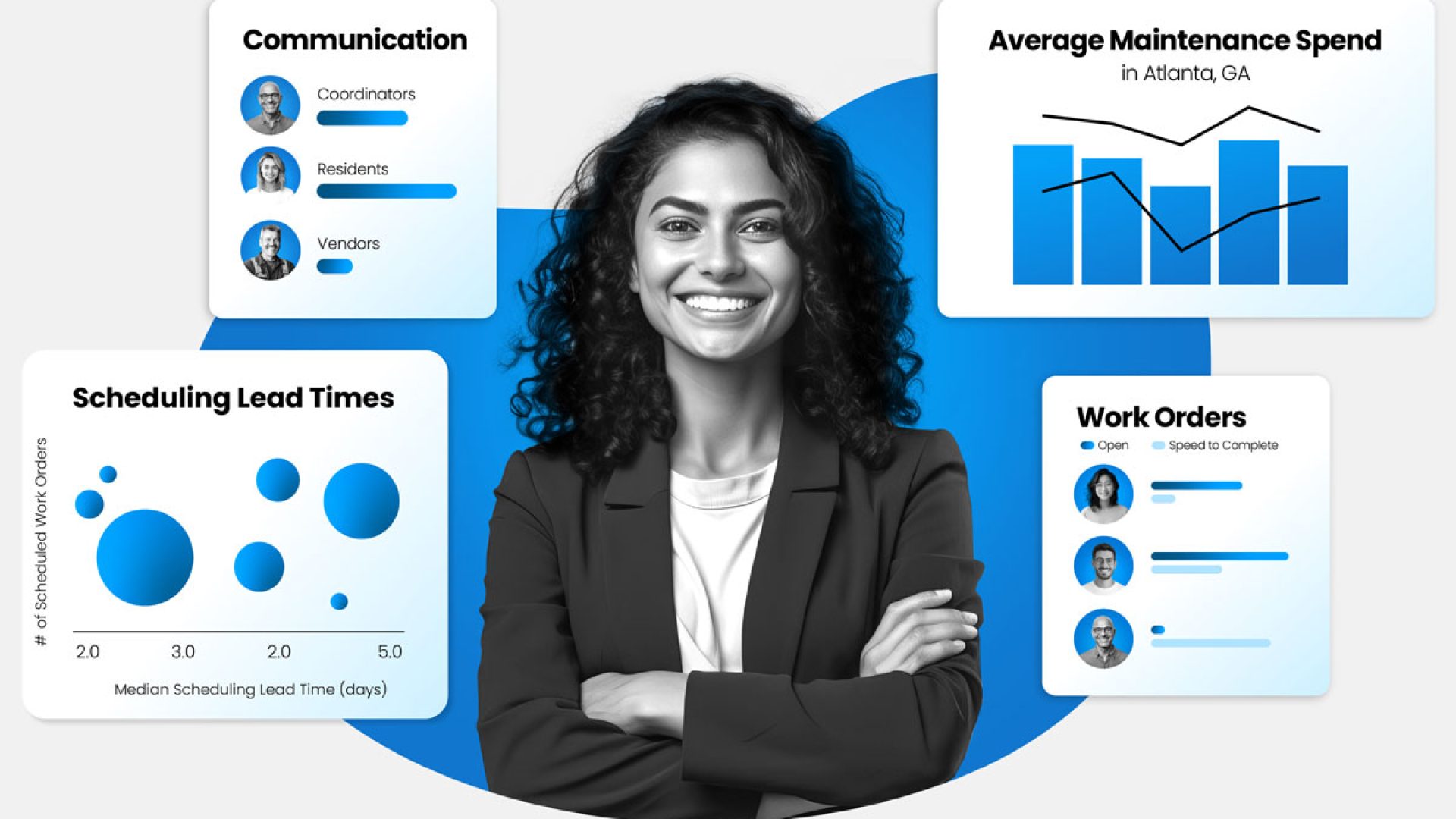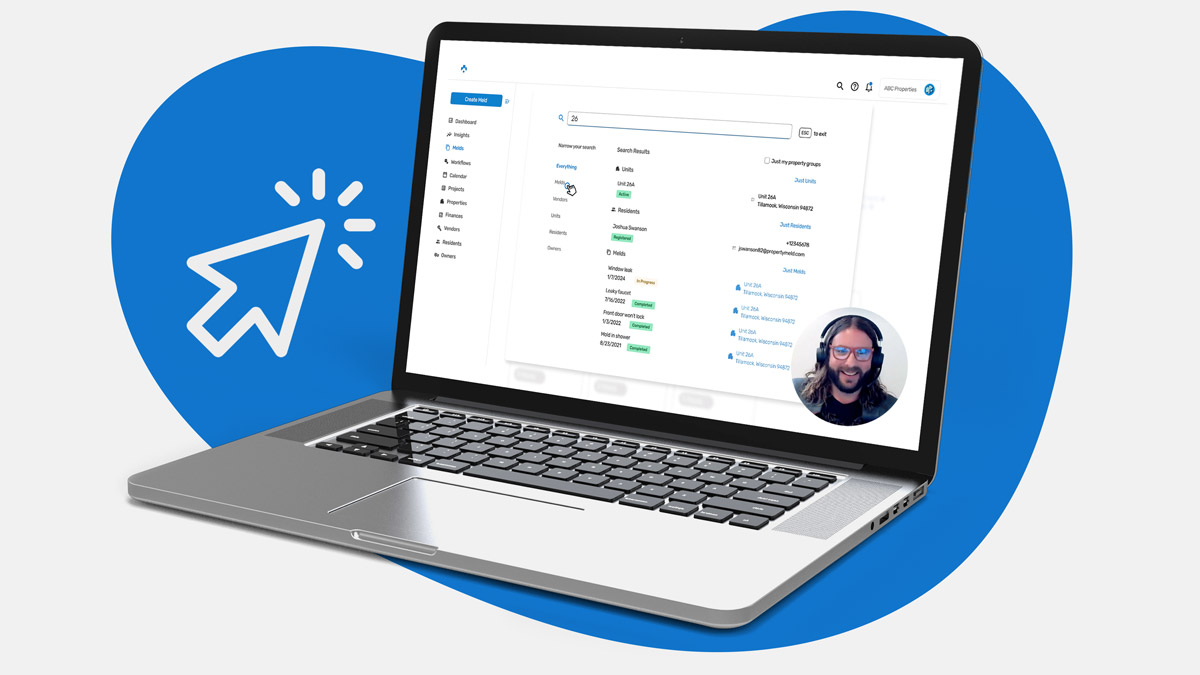In the rapidly evolving world of property management, data analytics has become a powerful tool for driving informed decision-making, optimizing operations, and ensuring successful technology transitions. As companies embrace new technology to streamline maintenance requests, improve communication with residents, and enhance overall operational efficiency, the ability to measure progress and track key metrics becomes crucial.
For property management teams, implementing new technology is only the first step. Real success lies in using data analytics to illuminate wins, identify areas for improvement, and optimize processes over time. In this blog, we’ll explore how data analytics can play a central role in property management change and how platforms like Property Meld provide the insights needed to ensure long-term success.
Why Data Analytics Is Essential for Change Management
Change management is about more than just introducing new tools—it’s about transforming how teams work and improving overall efficiency. However, without data to measure the success of these changes, it’s difficult to know whether your new technology is truly driving improvements or simply adding complexity.
Data analytics allows property management companies to track key performance indicators (KPIs), measure the impact of new technology, and make informed decisions that lead to better outcomes. By using data to track progress, property managers can:
- Monitor operational performance and make real-time adjustments.
- Identify trends that highlight successes or areas for improvement.
- Make data-driven decisions to optimize team workflows and improve resident satisfaction.
- Demonstrate ROI to stakeholders and property owners by showcasing clear results.
Tracking Key Performance Indicators (KPIs)
When introducing new technology, it’s important to set clear goals and metrics that allow you to measure progress. Data analytics provides the tools to track these KPIs over time, enabling property managers to assess whether the changes are having the desired effect. Here are some essential KPIs that can be tracked with Property Meld’s data analytics:
1. Maintenance Response Times
One of the most common pain points in property management is the time it takes to respond to maintenance requests. Residents expect quick resolutions, and delays can lead to dissatisfaction. Property Meld tracks the full lifecycle of a maintenance request—from submission to resolution—allowing property managers to monitor response times and identify bottlenecks in the process.
By analyzing this data, property managers can:
- Identify delays in the maintenance workflow.
- Determine which types of requests take longer to resolve.
- Implement strategies to reduce response times and improve overall efficiency.
2. Completion Rates and Downtime
Data analytics can also track completion rates for maintenance requests and provide insight into how long each task takes. For example, Property Meld’s platform allows property managers to view data on how quickly tasks are completed, whether any jobs require follow-up visits, and which vendors or technicians consistently meet deadlines.
This data illuminates where improvements can be made, such as:
- Addressing issues with specific vendors who may be slowing down operations.
- Reducing downtime between scheduled maintenance and repairs.
- Improving workforce allocation to ensure tasks are completed more efficiently.
3. Resident Satisfaction Metrics
Resident satisfaction is a key indicator of property management success. When a new technology platform is introduced, it’s important to track how it impacts residents’ experience. Property Meld offers tools to gather resident feedback after maintenance tasks are completed, providing property managers with insights into how well their team is meeting resident expectations.
Using these insights, property managers can:
- Identify common resident complaints or pain points.
- Ensure the new technology is improving communication and satisfaction levels.
- Address any service issues before they escalate.
Illuminating Wins and Highlighting Areas for Improvement
Once KPIs are tracked, data analytics can be used to highlight both successes and areas where improvements are needed. Property management teams often find that, after implementing new technology, they are able to celebrate significant operational wins they hadn’t anticipated.
Identifying Wins
When data shows that key metrics like maintenance response times have improved or resident satisfaction scores have increased, property managers can celebrate those wins. This not only demonstrates the value of the new technology but also helps build team morale and reinforce the benefits of embracing change.
For example:
- Improved maintenance response times: If data shows that maintenance issues are being resolved faster than before, it’s a clear indicator that the technology is working as intended.
- Higher resident satisfaction: Positive feedback from residents or an increase in satisfaction scores can be directly attributed to smoother operations and better communication facilitated by the new platform.
- More efficient resource allocation: Data may reveal that your team is spending less time on manual tasks and more time on high-value activities, showcasing the operational efficiency gained from automation.
Pinpointing Areas for Improvement
At the same time, data analytics allows property managers to pinpoint areas where additional training, process adjustments, or system tweaks are needed. By examining the data, property managers can identify trends and areas that require attention, such as:
- Inefficiencies in certain workflows: If a specific type of maintenance request consistently takes longer to resolve, it may indicate a need for better resource allocation or additional vendor training.
- Vendors or team members with lower performance: Data can highlight which vendors or team members are underperforming, allowing you to address these issues proactively.
- Resident dissatisfaction: If feedback scores drop or specific complaints become more frequent, data allows property managers to address the root cause of the dissatisfaction, whether it’s communication gaps or delays in service.
Making Informed Decisions with Real-Time Data
One of the most powerful aspects of data analytics is the ability to make informed decisions in real time. Property management teams can use platforms like Property Meld to access real-time data on their operations, allowing them to adjust processes, allocate resources more effectively, and solve problems as they arise.
For example:
- Adjusting staffing levels: If the data shows an increase in maintenance requests during certain periods, property managers can allocate more resources to those times to prevent backlogs.
- Improving vendor relationships: If certain vendors consistently fall short in terms of response times or quality of work, data allows property managers to address these issues through training or contract renegotiation.
- Proactively addressing issues: Data insights help property managers anticipate potential problems, such as rising resident dissatisfaction or increasing maintenance backlogs, allowing them to act before these issues escalate.
In the world of property management, data analytics is more than just a tool—it’s a driving force for meaningful, measurable change. By leveraging platforms like Property Meld, property management teams can track key performance indicators, illuminate operational wins, and continuously optimize their processes.
Data-driven insights empower property managers to make informed decisions, improve resident satisfaction, and ensure that technology transitions are not only smooth but also highly beneficial. In a competitive industry, staying ahead means not just implementing new technology, but also using data analytics to fine-tune and maximize its impact.






